IDENTITY. Unjustly forgotten thriller with an excellent twist
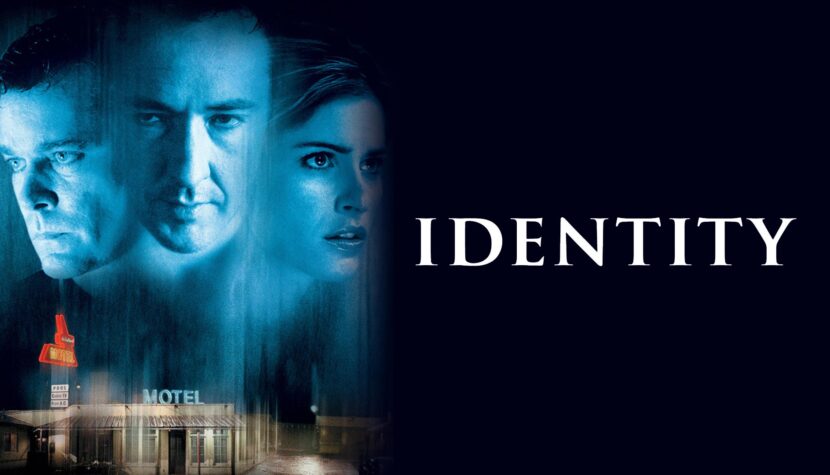
Twenty years after its premiere, James Mangold’s Identity seems like a somewhat forgotten thriller, with actors who have somewhat faded from the spotlight and a premise that has been thoroughly exploited since Agatha Christie wrote And Then There Were None in 1939. The plots of both works revolve around the meeting of ten strangers who, in an isolated place cut off from the rest of the world, begin to die one by one. Naturally, they try to find the killer before they are all killed. However, both Christie and Mangold don’t give their characters much of a chance to survive. While the book maintains its crime structure, the film at some point veers in a different direction, becoming less concerned with the question of the killer’s identity and more focused on the impossibility of what is happening on the screen. The horror arises from the gradual loss of faith in the reality presented.
The way in which Michael Cooney’s Identity screenplay connects the characters and brings them to the hotel is quite intriguing. On her way to California, the prostitute Paris’s clothes fall out of her car, including a hairpin that later punctures the tire of the York family’s car. During a tire change, Mrs. York carelessly steps into the road and gets hit by the limousine driven by Ed, a former police officer who is now the driver of a once-famous actress. They all end up at a roadside hotel run by Larry. Unfortunately, there’s no way to call for help as all the phones are out, which happened when Paris crashed her car into a telephone pole. Ed decides to go to the hospital, but the road to the nearest town is flooded. When he returns to the hotel, he is now accompanied by Paris, the newlywed couple Lou and Ginny, and the law enforcement officer escorting a convict, Rhodes. Even the police radio doesn’t seem to be working. A perceptive viewer may start to wonder whether they are witnessing the butterfly effect in action, a screenwriter’s game with a hint of irony, or something even more uncanny.
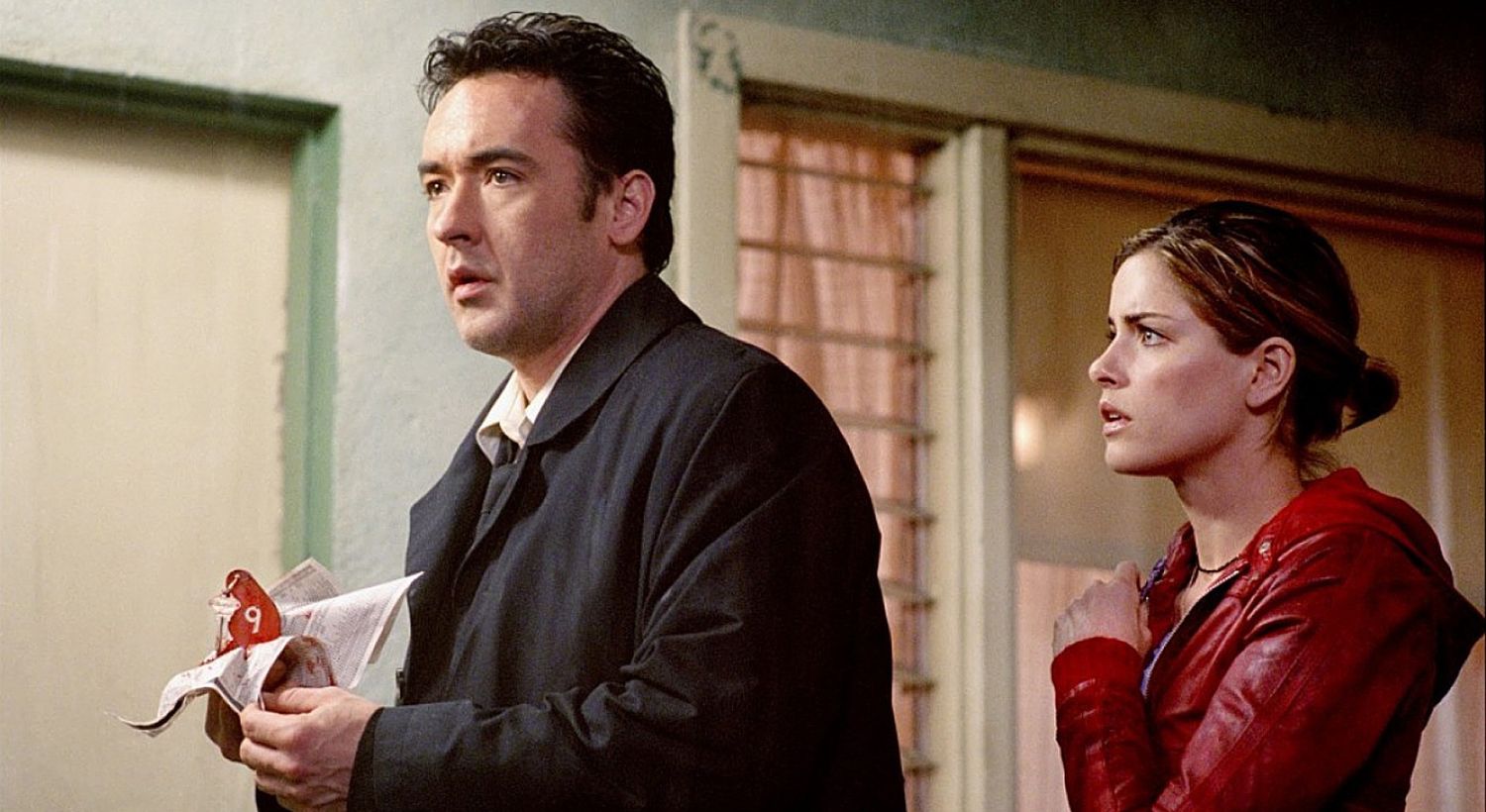
Mangold opts for realism, although the accumulation of strange events makes us feel that the characters’ fates are not in their hands. We accept this setup, as we are familiar with the formula: strangers must be in one place that appears cut off from the rest of the world, and everyone is a suspect to some extent, although not necessarily the killer. We easily identify with Ed, portrayed by John Cusack, who takes responsibility for the accident from the beginning and later becomes the nominal detective of the story. Even more so than Rhodes, a cop played by Ray Liotta, an actor who is hard to trust even when he plays positive characters. The moment when he takes off his jacket to reveal a large bloodstain on his shirt perhaps best captures the dual nature of the film, a thriller that is only one step away from horror. John Hawkes as Larry has a conniving look, and his character’s behavior is at best unconvincing. Amanda Peet as Paris is an interesting take on the “hooker with a heart of gold” trope, particularly because the script does not assign her a romantic role. The character turns out to be more complex than she initially appears, probably the most realistic one in the group.
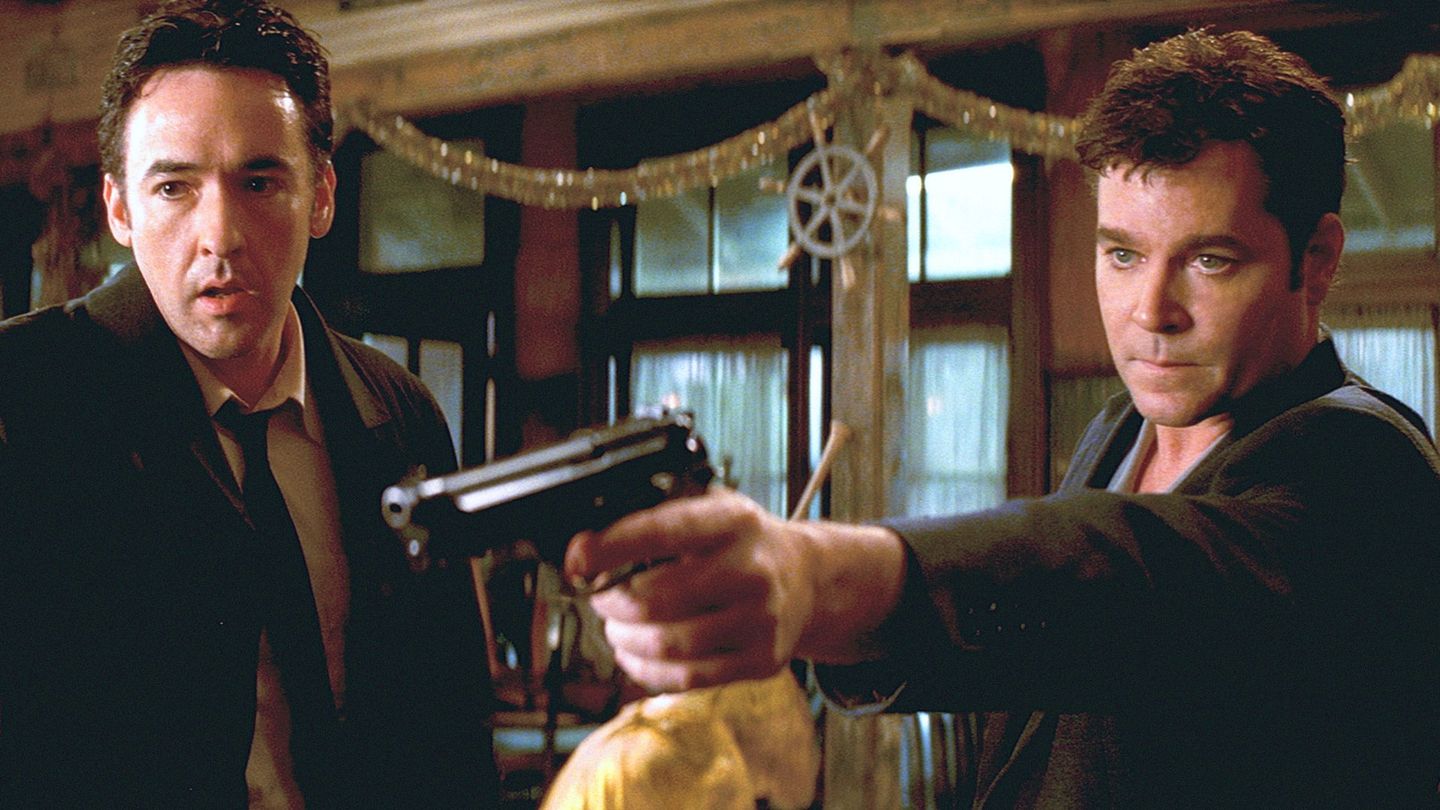
From the beginning of his career, Mangold has shown great skill in directing actors, as demonstrated in Cop Land (where he coaxed one of Sylvester Stallone’s best performances), Girl, Interrupted (earning Angelina Jolie an Oscar), Walk the Line (earning Reese Witherspoon an Oscar), and more recently in Logan, where he drew out every ounce of performance from the title character played by Hugh Jackman. Identity is no different in this regard, with Pruitt Taylor Vince, who portrays the mysterious Malcolm Rivers, leaving the most lasting impression. With his diagnosed nystagmus and childlike innocence etched on his face, the actor completely defies the image of a serial killer he portrays.
When the first murder occurs, Identity shifts into slasher mode, but due to the hotel setting, it’s more reminiscent of Psycho than Friday the 13th. There’s something more that connects Mangold’s thriller with Hitchcock’s masterpiece. In parallel with the hotel plot, there’s another, seemingly less important, but this is where the director begins his film. Alfred Molina portrays a psychiatrist who is trying to prove the insanity of a serial killer (the aforementioned Vince) to prevent a lethal injection scheduled in 24 hours. He must convince the judge that his client is not sane. Initially, the way these stories connect is unclear – is the convict the one who killed people in the hotel? Perhaps, considering the newspaper clippings from the film’s prologue, one might conclude that we are witnessing events that took place long before the killer began his spree. Both storylines unfold during a stormy night, prompting another, less likely hypothesis that their actions are simultaneous.
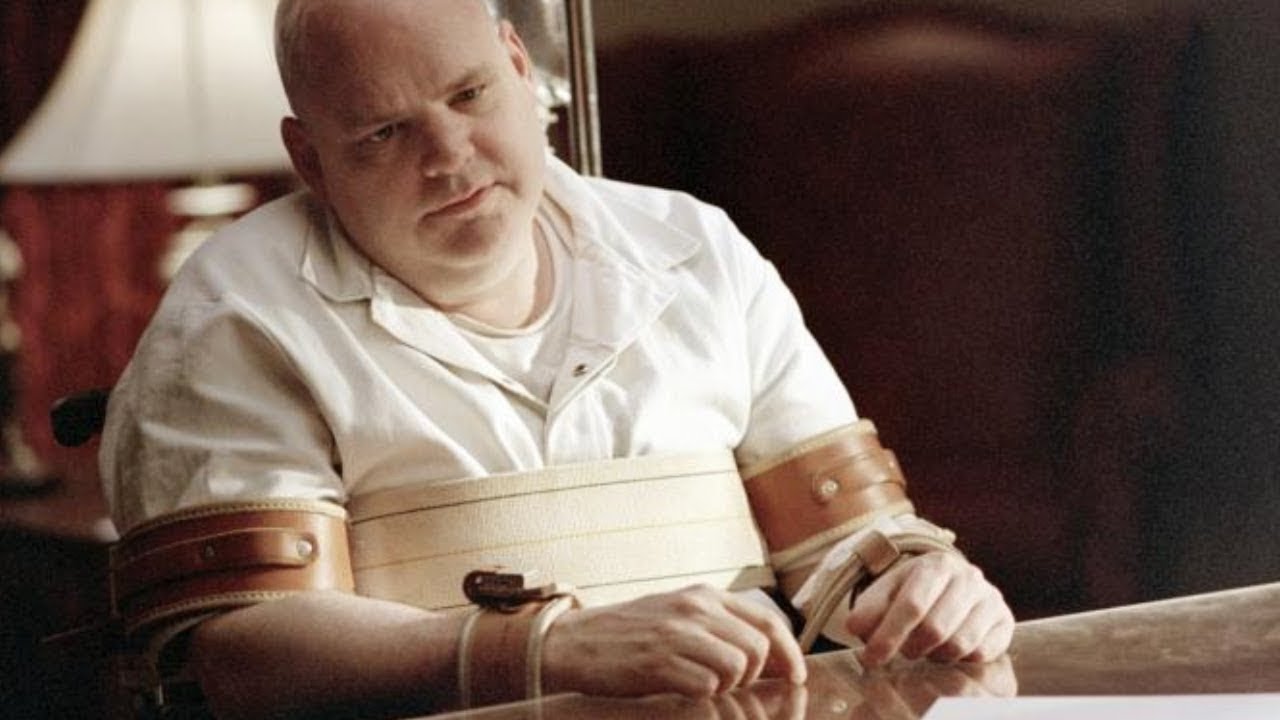
I remember that when James Mangold’s film Identity hit theaters, it caused quite a sensation among my friends who were delighted by the unexpected twist that occurs just before the actual ending. Identity was released in 2003, summarizing a period of change at the turn of the century when filmmakers enthusiastically explored the theme of questioning the reality in which their characters lived and whether they could trust their own perception. It was a time when movies like The Matrix, Memento, The Sixth Sense, Pi, eXistenZ, The Others, and Mulholland Drive emerged, outstanding works that captured the existential unease of their era, likely influenced by the new millennium and the rapid development of technology and the internet. Identity, although it seems to belong to this category because of its twist, lacks contemplation about humanity, the human condition in the face of inevitable change. The creators mercilessly dispose of one character after another, but only to the most righteous do they serve true horror, stripping them of their titular identity and condemning them to knowledge, which in a more significant project would be the basis for philosophical or psychiatric questions.
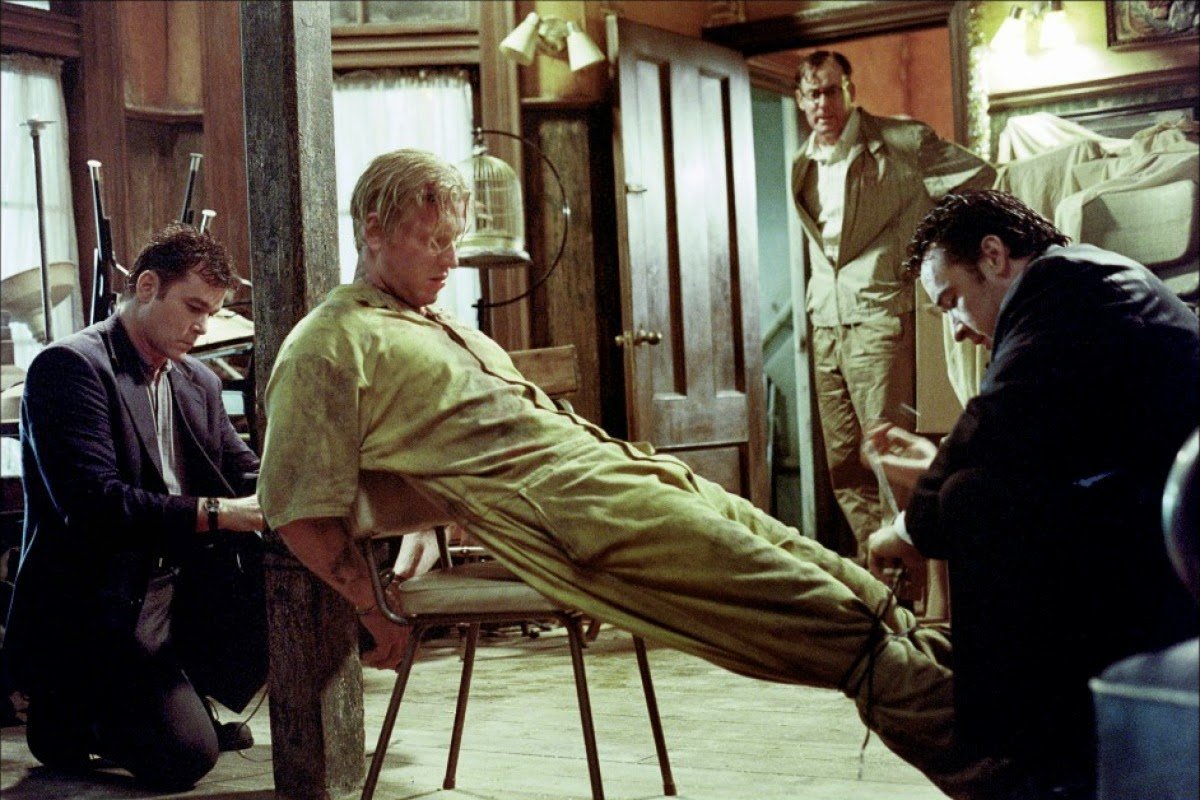
The moment when Cusack is literally torn out of the hotel, to relay the events up to that point, and suddenly appears in a white, dry shirt, though he was soaked from the rain just moments ago, blinded by the light and the stares of strangers, and then learns his true role in the macabre play in which he is involved – that’s when Mangold’s film reveals its true nature. This single scene is the reason Identity was made; it gives meaning to the entire movie and completely changes your perspective on the underlying criminal plot. Cooney and Mangold present an extreme twist – it will either delight or infuriate viewers – taking the film into the realm of almost science fiction, but only in terms of imagery, not necessarily in terms of content. At that point, the film could have reached for the stars, both literally and metaphorically, venturing into previously inaccessible territories, but the creators remain fair to Agatha Christie and her formula, content with a sensational resolution that is entirely successful and, most surprisingly, logical.
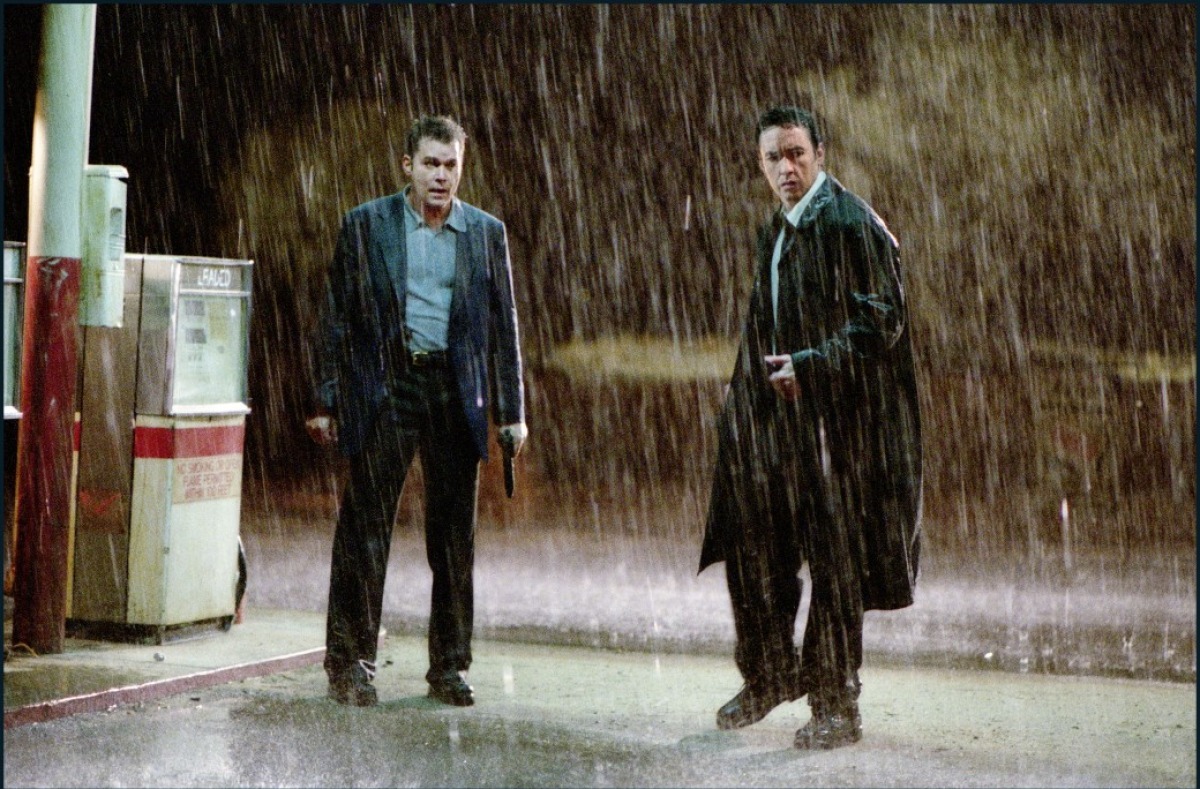
Identity emerges from the tradition of crime stories and finds a way to give a fresh twist to a familiar narrative. Is it more than a genre exercise, supported by the director’s excellent craftsmanship and solid acting? It’s a somewhat unfair question, pushing the film into the realm of a one-time adventure, although time has shown that it’s not on the level of Angel Heart, who took the detective story all the way to hell. Perhaps if Mangold had not remained faithful to Christie to the end and had completely detached himself from her at some point, his film wouldn’t have been forgotten so quickly. However, it’s worth revisiting it to discover that it still impresses with its structure, atmosphere, and the moment when Ed learns the truth. It may not be as shocking as in Angel Heart’s case, but it comes close.

